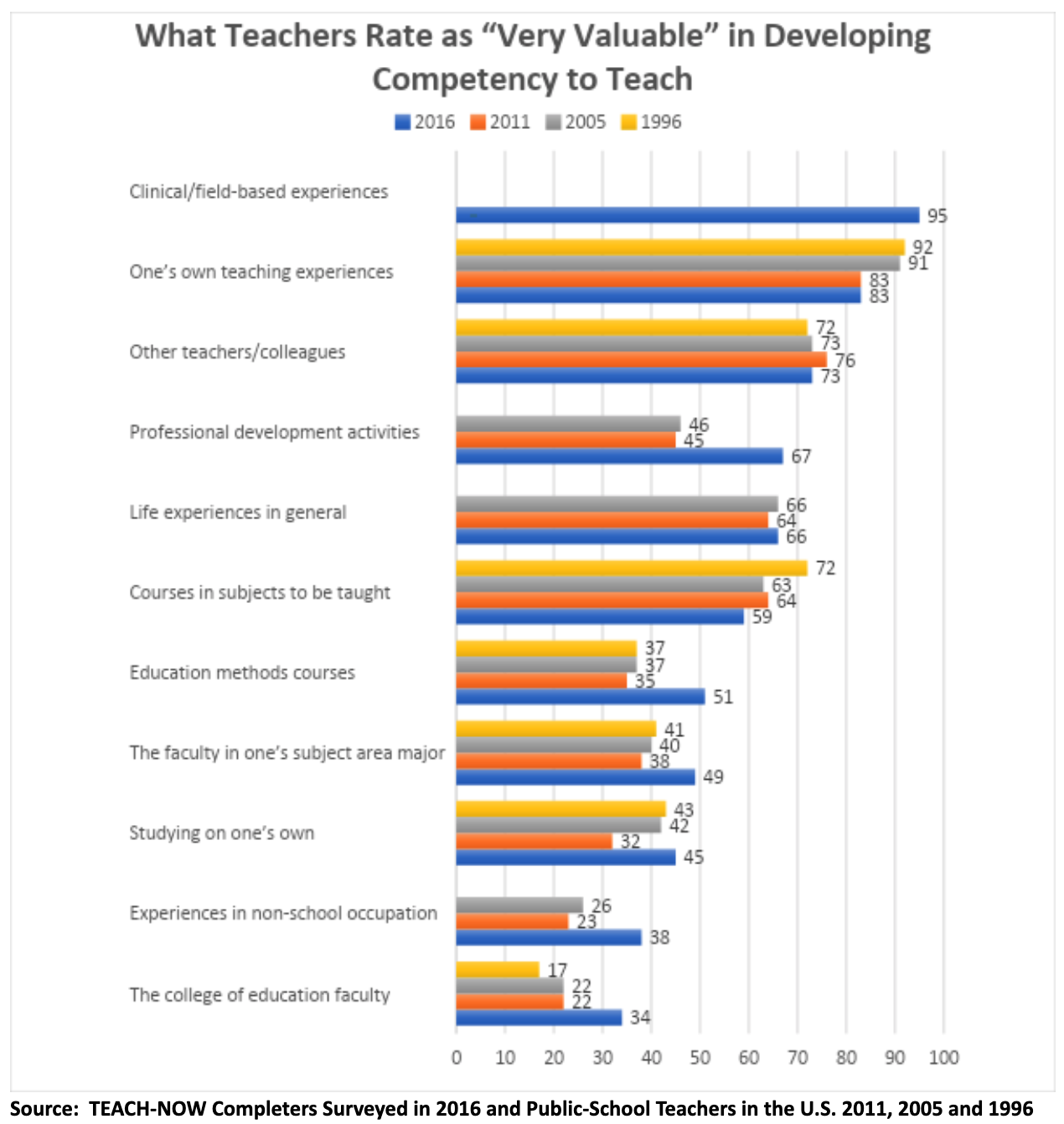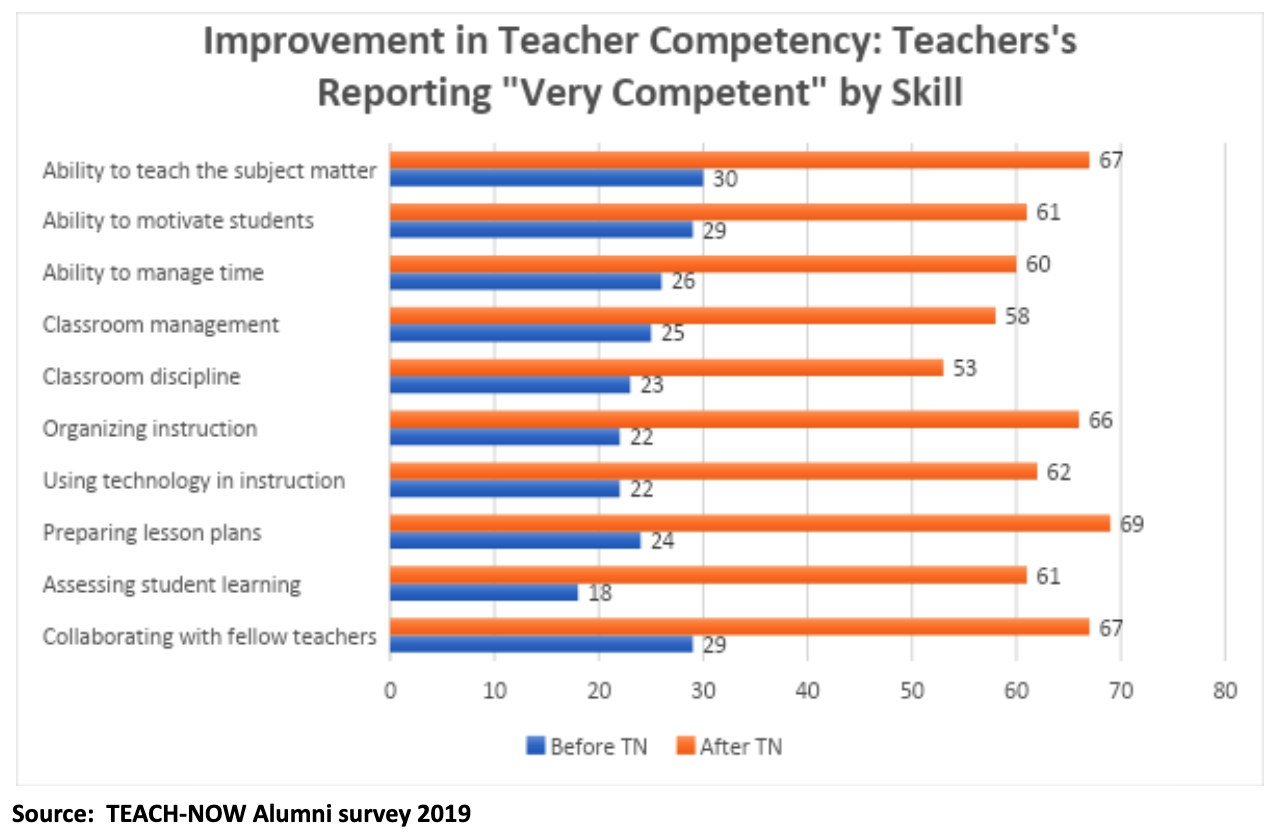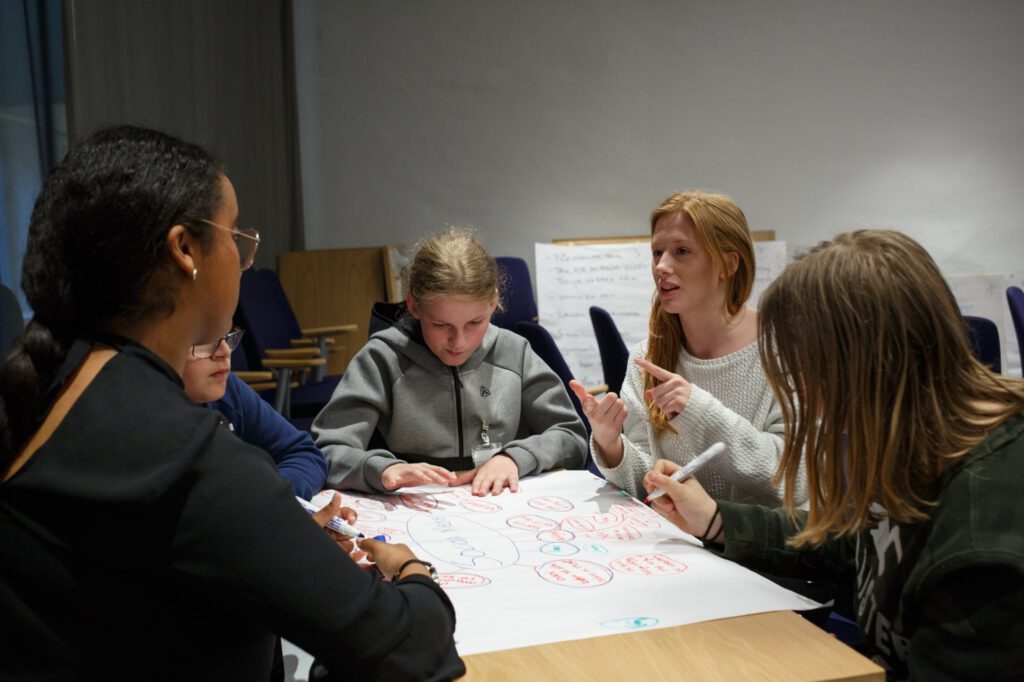Entering the teaching profession as an expert
Most of us are able to recall a teacher who had a significant, positive influence on our lives. The details of the memories differ, but usually there are several key elements⎯the teacher saw value in us and helped us see it too, the teacher sparked a real sense of excitement and love for a particular subject, the teacher challenged us in our own life and encouraged us to make our learning our own, and the things we took away from their instruction were things we’ve applied in our lives in meaningful ways, still remembering those academic and personal lessons today.
In an Ed Week blog from 2016, Tom Vander Ark listed the qualities of such expert teachers (1):
-
Act as facilitators and guides
-
Provide anytime, anywhere and on-demand support
-
Embody core values that support deeper learning
-
Truly encourage students to drive their own learning
-
Create real-world and authentic learning experiences
-
Leverage technology to personalize learning
-
Commit to Professional and Personal Growth
This is what an expert educator does, and something all teachers aspire to, but how does one learn to become such a teacher? What is the process, what are the tools, what are the skills that can help us develop into masters of our craft? In short, how do teachers best learn to teach?
Think back for a moment to when you were first beginning the job that you have now. What were some of the people or situations that helped you become a master of your craft?
It turns out that, when asked this question, teachers are able to identify very accurately what skills are necessary to become an expert teacher and what type of learning experiences help them develop those skills. Like you perhaps just thought about, teachers share that learning from their colleagues, engaging in practical training, and actually practicing teaching best prepared them to be successful teachers. Theory didn’t have nearly as much utility. Rather, teachers learn best by doing and by using teamwork to tackle real-world situations.
This chart shows the answers teachers gave in more detail.
TEACH-NOW’s curriculum and delivery model were built from the ground up, modeled around the learning experiences of collaboration and practice- the very experiences teachers say best help them learn to be a good teacher. Candidates go through the program with a cohort of fellow teachers, engage in practice-based activities designed to develop competency in a set of critical teaching skills, including a rich infusion of technological training. TEACH-NOW instructors facilitate this learning process, helping drive meaningful collaborative experiences between cohort members as they work together on real-world classroom scenarios.
As seen in the chart below, by designing a teacher preparation program around the elements that teachers say help them learn best, the TEACH-NOW model allows for educators to enter the classroom with confidence in their teaching abilities.
With the skills and knowledge needed to perform your job as a teacher, you will be able to thrive and create a dynamic learning environment for your students. But no one becomes a master immediately. One of the biggest benefits you will come away with from going through the TEACH-NOW program is that the practical-based activities and teacher-as-facilitator model encourages you to become a resource-rich problem solver. You won’t be limited simply to the things you learned during the program. Having learned to adopt a growth-mindset in the way you approach your work, you will have been trained in how to assess your student needs, investigate solutions and tools, and create a plan tailored to the specific needs of your students. You will enter the profession with an excellent grasp of the fundamental skills and knowledge necessary to perform your job competently and the mindset needed to develop into a true expert teacher.
—Andrew Christian, Institutional & Market Research
TEACH-NOW Graduate School of Education
References
(1) Vander Ark, T. (2016, April 13). 7 Traits of a Learner-Centered Teacher. Education Week. http://blogs.edweek.org/edweek/on_innovation/2016/04/7_traits_of_a_learner-centered_teacher.html



